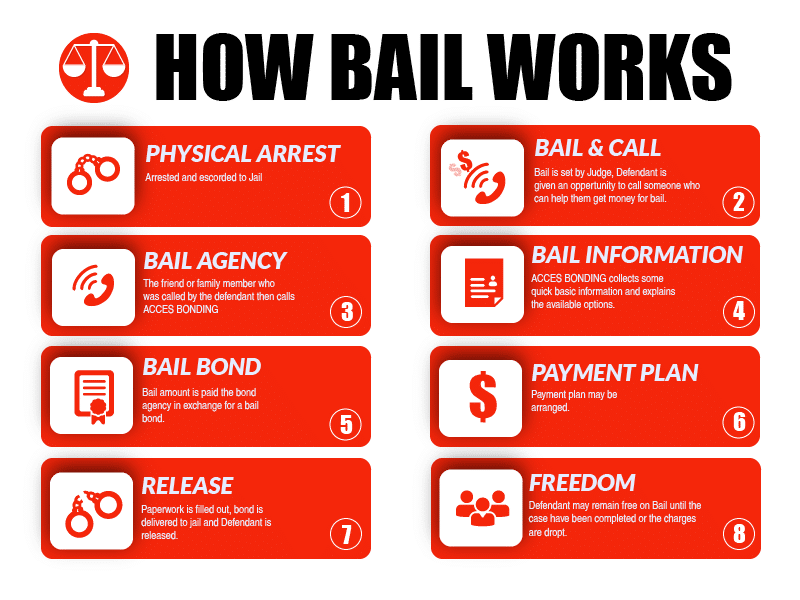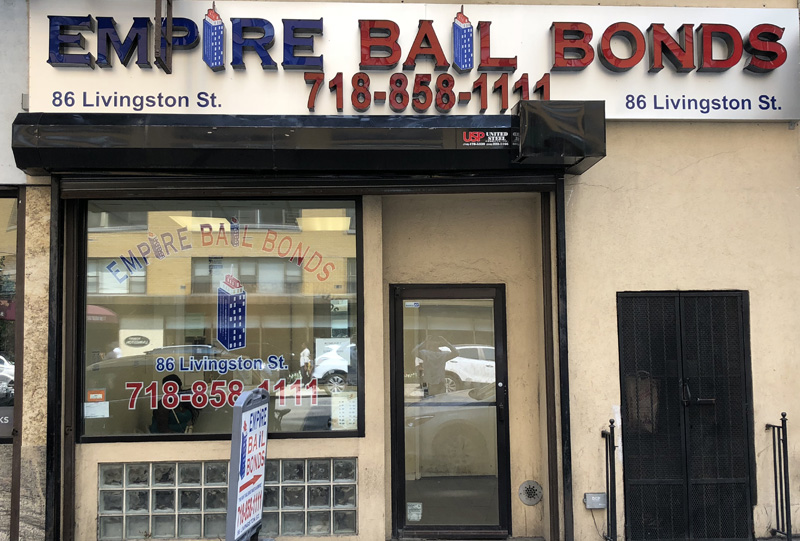Unlocking the Secrets of Bail Bonds: A Thorough Overview
Navigating the complex globe of Bail bonds can usually really feel like figuring out a puzzling code, with layers of intricacy that stay concealed to numerous. From the various types of Bail bonds offered to the essential role of a co-signer, each aspect plays an important component in this lawful procedure.
Recognizing Bail Bonds Process
When dealing with a legal scenario that requires uploading Bail, comprehending the Bail bonds procedure is important to browse the complexities of the judicial system effectively. Bail bonds serve as a financial warranty to the court that the offender will show up for all required court looks. This process includes a bail bondsman, who generally bills a non-refundable cost, generally around 10% of the overall Bail quantity, to publish the Bail in behalf of the offender.

Moreover, security, such as building or assets, might be required to secure the bail bond. Recognizing the conditions of the bail bond contract is vital to guarantee conformity and prevent any type of additional lawful consequences. By understanding the Bail bonds procedure, people can make informed choices when navigating the legal system.
Sorts Of Bail Bonds Available
The most typical type is a guaranty bond, where a bail bondsman pays the full Bail amount on part of the accused in exchange for a non-refundable charge, usually around 10% of the overall Bail. Cash money bonds call for the complete Bail quantity to be paid in money prior to the offender can be released.
In addition, there are federal Bail bonds for cases involving government costs and immigration bonds for people detained by Migration and Traditions Enforcement (ICE) Recognizance, or signature bonds, are provided based on the accused's guarantee to show up in court without needing any kind of settlement. Finally, transfer bonds are utilized when an offender is detained in a different state and requires to upload Bail to be launched. Understanding the various kinds of Bail bonds offered can help offenders navigate the lawful process better.
Obligations of the Co-Signer

In addition, as a co-signer, you are answerable for ensuring that the defendant adheres to any problems set by the court, such as attending counseling or avoiding from certain tasks. It is very important to keep open communication with the offender to monitor their conformity and address any type of problems quickly. Ultimately, being a co-signer involves a considerable degree of trust fund and from this source obligation, as you are economically and legally linked to the defendant's Bail commitments.
Consequences of Skipping Bail

Skipping Bail can have severe legal consequences for both the accused and the co-signer associated with the bail bond agreement. When a defendant stops working to appear in court as needed after uploading Bail, the court normally provides a warrant for their arrest. This not just aggravates the offender's lawful problems however likewise puts the co-signer in jeopardy.
For the offender, missing Bail can lead to additional criminal fees, such as contempt of court or Bail leaping, which can cause fines, a cancellation of Bail benefits, or even jail time. Furthermore, the defendant might shed the Bail amount paid and any kind of security offered.
Co-signers likewise face significant consequences if the defendant misses Bail. As the co-signer guarantees the defendant's look in court and is financially responsible for the full Bail quantity, they might be required to pay the whole Bail if the accused absconds. click this This can bring about economic pressure, harmed debt, and possible lawsuit against the co-signer.
Key Consider Bail Bond Approval
Extra significant offenses may lead to greater Bail amounts or even a denial of Bail entirely. A background of previous sentences or a pattern of missing court days can raise red flags and make it harder to secure a bail bond.
Furthermore, the connections the defendant has to the community can affect the approval of a bail bond. Strong neighborhood ties, such as stable work, family members connections, and long-term residency, can work in favor of the accused. On the various other hand, trip danger concerns may occur if the defendant has no solid connections to the area. Funds site here likewise play a substantial role. The capability to pay the Bail quantity or give collateral can increase the opportunities of bail bond authorization. Inevitably, a mix of these factors is weighed by the court when establishing whether to approve a bail bond.
Conclusion
To conclude, understanding the Bail bonds procedure, the types available, the obligations of the co-signer, the effects of missing Bail, and the crucial variables in bail bond authorization are crucial for browsing the lawful system. By familiarizing oneself with these aspects, individuals can make educated choices and make sure a smoother process when handling Bail bonds. It is necessary to follow the standards and requirements stated to avoid any kind of prospective complications.
The most common kind is a surety bond, where a bail bondsman pays the complete Bail amount on part of the defendant in exchange for a non-refundable charge, normally around 10% of the complete Bail. By signing the bail bond agreement, you are taking on the duty of guaranteeing the complete Bail quantity if the accused falls short to appear in court - bail bonds dayton ohio.Missing Bail can have significant lawful effects for both the co-signer and the offender entailed in the bail bond contract. The capability to pay the Bail amount or provide collateral can raise the possibilities of bail bond approval.In conclusion, understanding the Bail bonds procedure, the types offered, the duties of the co-signer, the effects of avoiding Bail, and the key elements in bail bond approval are vital for navigating the lawful system